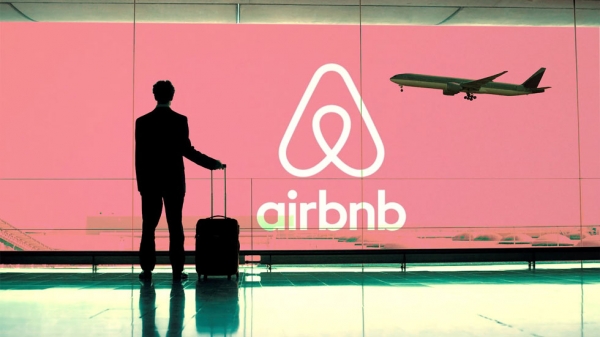Airbnb is an online service that allows property owners to rent out their properties directly to end-users, which allows owners to make money off their properties and provides another option for people looking for accommodations. The US-based company has seen impressive success since it launched its service in 2008 and now spans the globe in terms of reach and properties listed.
The value proposition to renters is that landlords/owners with unique properties or properties in unique locations can list their space and renters have an opportunity to share in that unique experience. It allows vacationers to have a "native" or "local" experience that they could not have at fully serviced hotel chains with their more touristy feel.
Additionally, as property owners can directly rent their spaces to end-users, rates per night are almost always cheaper than they would be if a traveller were to book with a conventional hotel with the same amount of space, or similar attributes as the Airbnb property.
A growing question on the minds of many, especially in the hospitality industry, is how much Airbnb is going to disrupt the hospitality sector and whether it will lead to the cannibalisation of the professional hotel industry. At a basic level, both Airbnb rental properties and hotels provide the same function -- a clean bed, a roof and shower, but from there the two accommodation services offer different experiences.
For example, a business traveller usually is looking for a fully serviced hotel in a prime location, and the peace of mind that comes from knowing that a branded hotel will deliver a certain standard of quality. Such travellers are far less likely to search for a privately owned space on Airbnb. The same can be said for the casual vacationer looking for an all-in-one solution from their accommodation.
On the other hand, families with modest budgets, local travellers, those planning longer stays or those looking for a more "native" accommodation experience may be more apt to look for a private property on Airbnb. As well, vacationers in search of special properties, such as those looking to rent a private island, private mountain cabins or beach villas, or even castles, may look to Airbnb as a source for finding accommodation.
Jamie Lane, a senior economist with PKF Hospitality Research, believes that Airbnb will occupy a niche among a growing portion of the population as a legitimate alternative to traditional lodging options and will expand into business and group travel. But in his view it probably never will capture a meaningful portion of business-travel demand the way it has done in the leisure travel market.
At the moment, research suggests that the hotels most vulnerable to losing market share to landlords using Airbnb are low-end and budget properties that do not cater to business travellers. Branded hotel chains occupy a safe (although changing) market segment for the time being. Ultimately, the consumer is the winner however this plays out, given the increased choices when booking accommodations.
Thailand, unlike some other countries, has been far less friendly to landlords listing on Airbnb looking to make extra money through renting unused properties. Understandably, traditional hotel owners want to prevent as much competition as possible. As a result, the Thai Hotels Association has called for legal action to be taken against people offering their properties on Airbnb.
The Tourism Ministry has made it clear that property owners "illegally" renting out their properties to tourists would face the same taxes that "legitimate" hotels are required to pay. Instead of prohibiting individuals from using Airbnb as a rental platform for private properties, perhaps regulating certain safety- and hygiene-related aspects in the properties listed would be better in order to protect renters.
In the meantime, those renting accommodation from landlords on Airbnb must take their own risk when it comes to quality standards, service and safety as Thailand does not have any laws to govern the standard of "bread and breakfast" accommodations.
While it is understandable that regulations would want to discourage listings of private individual properties in a tourism-heavy country such as Thailand, it is also prudent to make sure that concern about market cannibalisation does not have the counterproductive effect of contributing to complacency and lack of innovation in the hospitality sector.
As far as tax revenue is concerned, there are other laws that could be applied to those conducting their rental business on Airbnb, requiring them to pay taxes on revenue just as if they were renting out properties through conventional means.
In any case, hoteliers who are worried about Airbnb and wondering how to counter its impact might be wise to study the lessons from retailing. While ecommerce has transformed the way that consumers buy products, progressive bricks-and-mortar stores have evolved to meet needs that online stores cannot.
Change keeps innovation moving forward, and services such as Airbnb are in a position to make impacts on the hospitality industry in the same way that sites such as Amazon and eBay have made on retailing. Finding ways to work with, instead of against, these new technologies may lead to the best solutions in the long run for both consumers and to creative evolution in the professional hospitality industry.


